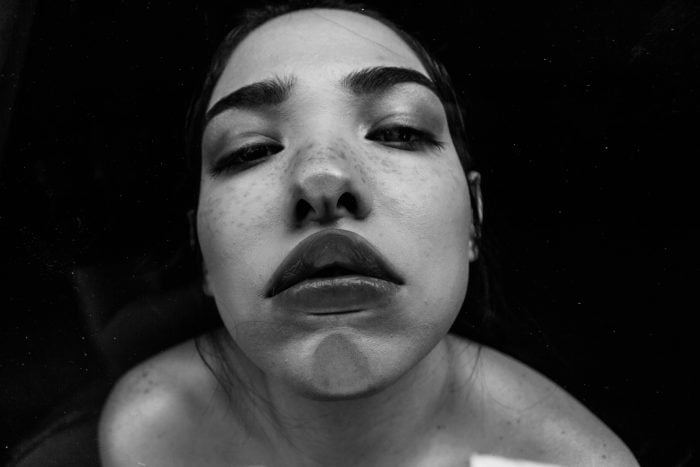From the day we are born, we are taught to be everything but ourselves.
Sometimes, even before we have been birthed from the womb, we have our name—a name that someone else decided for us.
Grand; so this is who I am.
We’re all set up in a cute themed nursery—something our parents no doubt love, with no regard to if we may even like Winnie or Spiderman. We’re too small to notice anyway. Or are we?
Our tiny minds soak in everything around us, as we wake up to this new world, with all this stimulation and all these new things. We don’t really know who we are or what we like yet. So we begin to figure ourselves out.
We’re passed around like a bundle of pride. Look what we made! Strangers invade our personal space; whether we like it or not, we are in their energy.
We are dressed to woo others with our cuteness—something our parents need to impress others as if the miracle of a baby isn’t enough. They need designer shoes made in sweatshops, and jackets we will grow out of before we even realise the cost.
And when we’re finally old enough to dress ourselves, proud of the crazy, coloured layers thrown together, we fly out of our the bedroom, only to be met with a gasp from the ever-present mother. “You can’t go out looking like that she says,” and she drags you back into the room to peel off the items of clothing we loved so dearly and put together with our own imagination.
At that moment, every single bit of creativity and individuality is torn from us.
We can no longer be the tutu-wearing fairy warrior we planned to be that day. We are taught that we need to look nice, in our put-together clothing—maybe the stockings that itch, or the cardigan that keeps falling off.
Is our creativity and enthusiasm, shown in an outfit, not nice enough for the world to see? And what about who we want to be?
Three-year-olds don’t have a say; they do as they are told, we hear.
So we wear the dress, the itchy stockings, the cardigans even though we hate them. And then we are wooed and complimented on how pretty or handsome we are, so we learn that what we like doesn’t count; we have to look good for others.
Perhaps at that moment, our mothers and fathers need to step away from the constructs of what society deems is okay or nice or “suitable attire.” for a child to wear.
Maybe they should praise us for the effort made in putting together this wild and wonderful outfit, even if the colours and patterns don’t match.
How wonderful it would be to be told that we are so creative. How wonderful it would be were the “unusual” to be celebrated.
We grow and then head off to school, where they too have rules about how to dress, how our hair should be kept.
“Keep quiet,” they say. “Stand in a straight, single-file line.” Again and again, our voices and non-linear tendencies shut down.
They call it discipline; we know it’s control.
And yet they call our quiet moments inside our heads—the times when we manifest and daydream—unproductive. And as we age, they wonder why we have to fight to find that calm space of meditation.
They tell us how the people we see and speak to as children are “imaginary friends” and that they will leave us one day.
We are taught to repress our inner guides and to discard their answers for the voice of authority.
We are taught to ignore our intuition—that we’re silly when we say we don’t like that person, or that our tummy aches in doubt and discomfort, or that a place makes us feel funny.
Move along, anyway, we’re told. We’re too small to have a voice; we’re too small to know. And so when one day we need that voice—when we know that feeling with that person in that place was wrong—we can’t find it. We don’t use it.
How can we ever feel good and safe in who we are, if we are always groomed to be something and someone else?
Schools stifle the voices of our youth, forcing them into boxes of fitting in, shaming anyone who is different in any way. Already segregated.
They interrupt genuine learning to save themselves from cleaning up a mess. Let children learn. Yes, the hard way.
How many young men leave school and the first thing they do is grow their hair? A sign of their freedom, of the ability to finally feel what it is like to make their own decisions about their body. And who gets to decide that boys’ hair should be short anyway?
I bet nobody challenged a Viking or Native American warrior to cut their hair to fit in.
Why do we not celebrate these differences as the beautiful uniqueness of who we are?
What if we took just a little bit of time to understand our children, to listen to their ideas and who they want to be? What if we took just a little bit of time to understand that we are ourselves and they are themselves—not our idea of who they have to be?
We’ve been groomed into what pleases the eyes and minds and ears of others.
How to speak, so people we don’t even like, can like us.
How to dress to impress people who don’t impress us.
How to think the ways that others think.
Is it any wonder why we have never been sure of who we are? That we’re always moving from circle to circle to see where we fit, only to find we’re not even a circle at all?
Have you ever taken the time to allow children to be who they want to be without the expectations of others and ideas of who they should be?
They say that knowing thyself is quite literally, the meaning of life—that how we see ourselves and our self-worth is directly affected by the perception of others and the value placed on us by society and our fitting it.
So when we are told as children how funny we are, how pretty we are, how clumsy we are. Those ideas stick with us as who we are. We wear these labels, these masks, our whole life until we are finally brave enough to shed them, ripping them off in pain to be comfortable in our own skin.
The influence over our self-esteem and self-knowing starts as young as babies, with the tiniest parts of our individuality stolen from us not purposefully, but because our parents were never given the opportunity to be and know themselves.
How do we do better?
We need to remember that our children are souls borrowed to us, belonging to the earth and the stars and not to the ideas and social constructs of others.
They belong to the light within themselves, so free them from the chains of who you think they need to be, and give them the confidence to be wild and weird and happy within their own skin.
We need to make “being weird” a compliment and not fitting in the new norm.
~









Read 0 comments and reply